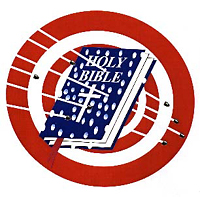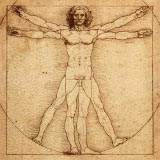









I thought it was high time we had another “nuts and bolts” blog, part of a series where I unpack some of the basic terms and concepts used in either theology or philosophy. This time we’re in theological territory, looking at the question of what this thing called Liberal Theology (or “theological liberalism”) is.
As I’ve noted before when discussing the issue of inerrancy, Martin Luther said that the Bible made statements that weren’t correct about the number of people involved in battles. John Calvin said that the Bible made statements that weren’t correct about a bright star in the sky when Jesus was born. Charles Hodge* said that when it comes to truth and error, the Bible was like a marble building, where marble is truth and sand is not. Sure the building might contain the occasional speck of sand which isn’t marble, but we can still call it marble overall.
Now as I look around the world of conservative evangelicalism, I notice that nobody calls Luther, Calvin or Hodge a liberal (or at least, nobody that I am aware of). And yet for expressing this sort of thought about the Bible myself (namely that everything it teaches is true, but it contains incidental claims that are not factually correct), I’ve recently been called a theological liberal (albeit by a very small number of people whom I can count on the fingers one hand and still have a couple of fingers left over). Theological liberalism is the movement represented by the likes of John Shelby Spong, Lloyd Geering in New Zealand, or historically by folk like Rudolph Bultmann or Friedrich Schleiermacher. I wonder how these guys would feel at being lumped in with Calvin and Hodge?
Moving on to the issue of the afterlife, well known evangelical scholar John Stott claimed, on exegetical grounds, that the lost will one day be no more and that only those people who have eternal life in Christ will live forever. The same position was expressed by other evangelical authors like Michael Green, Philip Edgecumbe Hughes and John Wenham. The church father Arnobius of Sicca taught the same thing (this is just meant as a tiny list of examples).
And yet, for defending this same doctrine – on the basis of detailed exegesis of many parts of Scripture – I’ve been dubbed by one or two people in recent times a theological liberal. I wonder how John Spong would feel being told that he was in the same camp as John Stott!
Of course as many readers will see right away, something has gone askew here. All of this is just a case of confusion. Unfortunately there’s a tendency for some evangelicals (although fortunately not the majority) to think that their stance on any theological issue is the default conservative one (naturally!), and that if a person doesn’t hold their view then they must (obviously) hold a view that makes them a liberal. What’s on display when this happens is actually just historical ignorance of what theological liberalism actually is, combined with confusion over the difference between erroneous beliefs and a theologically liberal stance. As I said when I started the “nuts and bolts” series, rather than just getting frustrated at ignorance, it’s better to become part of the solution. So today I’ll be answering the questions: what is theological liberalism, and how is it distinguished from say, error or heresy?
Read More



 In episode 50, I ask the question – So what?
In episode 50, I ask the question – So what?
 I started the “Nuts and Bolts” series as a way of explaining some of the basic / common concepts in philosophy as well as theology at a fairly introductory level. Sometimes this is prompted by the realisation that online, often people refer to those concepts – even criticising or commending them – without actually having a firm grasp on them. It was an example like this that prompted me to start the series.
I started the “Nuts and Bolts” series as a way of explaining some of the basic / common concepts in philosophy as well as theology at a fairly introductory level. Sometimes this is prompted by the realisation that online, often people refer to those concepts – even criticising or commending them – without actually having a firm grasp on them. It was an example like this that prompted me to start the series.
 It has finally arrived, episode 25. It’s a bit of a different topic for me, not very philosophical, I guess a little theological, just some ideas that have been on my mind a bit lately about how we should approach the world and what it means to be a Christian in it.
It has finally arrived, episode 25. It’s a bit of a different topic for me, not very philosophical, I guess a little theological, just some ideas that have been on my mind a bit lately about how we should approach the world and what it means to be a Christian in it.